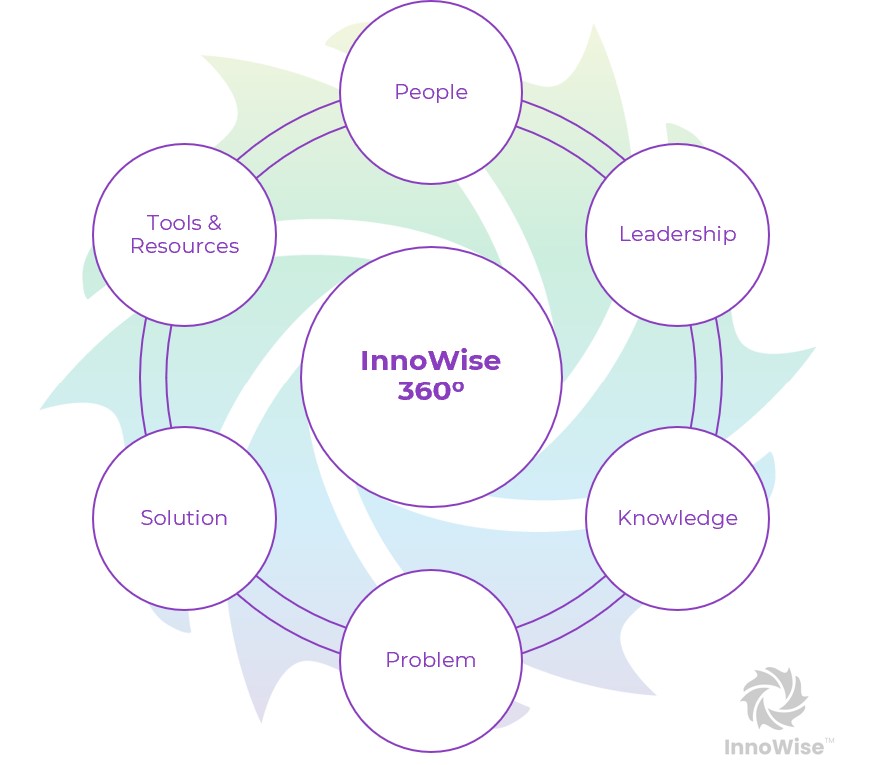Why is Trust important?
Why is trust important to consider in how we manage innovation?
As the former Queensland Chief Entrepreneur, Julia Spicer OAM, recently said,
“Innovation moves at the speed of Trust”.
This posts builds upon this statement and our understanding of where Trust presents in innovation. The InnoWise – 360 framework explains the connectivity of Trust in innovation. The illustration shows where Trust presents in the innovation cycle.

InnoWise Trust 360
Outline
In this article, we explore why trust is important when managing innovation.
Innovations fail frequently or do not meet expectations:
-
95% of product developments fail, (Professor Clayton Christensen of Harvard Business School) which consumes considerable resources
-
1% of digital transformations meets expectations (World Economic Forum)
There are many issues with this situation. However, the statistics suggest that there is a great opportunity to do better.
Here are some of the issues that I believe contribute to these poor statistics:
-
innovation becomes too risky for many which leads to missing out on opportunities
-
when we spend $10 Trillion per year on digital transformations per year, globally (World Economic Forum), this amounts to a significant amount of rework, wasting time, money and resources
-
we need to pick up the pace of innovations to avoid a climate catastrophe.
We need to do better and we can do better.
Why Trust?
The influence of trust in organisations has been revealed by Ashley Reichheld & Dunlop (2023) Deloitte to result in significant, 400%, performance improvement and employees are 70% more motivated.
My research has revealed that turning ideas into reality requires trust & energy to get the momentum that is needed to create change.
Innovation creates change and change is not easy. It requires a good reason to make it happen as people’s behaviours need to change. With trust, there will be energy available to make the change. Hence, with trust, a loss in momentum is avoided and the initiative is more likely to be a success.
For trust to foster acceleration in our pace of achieving successful innovative outcomes, these attributes apply:
-
people: leaders, collaborators and team players are on board, are trustworthy and have sufficient capability and resource commitment
-
the knowledge aspects are appropriate for effective creation of the solution and transfer of the new knowledge
-
the problem is worth solving
-
the solution is going to work and meet my needs
-
support required to undertake this change will be sufficient and reliable.
These attributes align with the four factors of trust presented by Reichheld & Dunlop (2023). Humanity is central to the people and leadership component. Capability is related to the knowledge and solution. Transparency is needed regarding the problem and the solution. Reliability is required with the solution as well as the tools and resources.
Find out more by talking to Lee directly. Utilise the contact form or send Lee Foster a DM on Linkedin. Or refer to the information provided on the InnoWise page.
References
Foster, L., Wiewiora, A. & Donnet, T. Integrating Knowledge Management and Governance for Innovation Outcomes: A New Framework for Managing Innovation in a Project Environment. Journal Knowledge Economy (2023). https://doi.org/10.1007/s13132-023-01399-2
Reichheld, A., & Dunlop, A. (2023). The four factors of trust : how organizations can earn lifelong loyalty. John Wiley & Sons, Incorporated.
